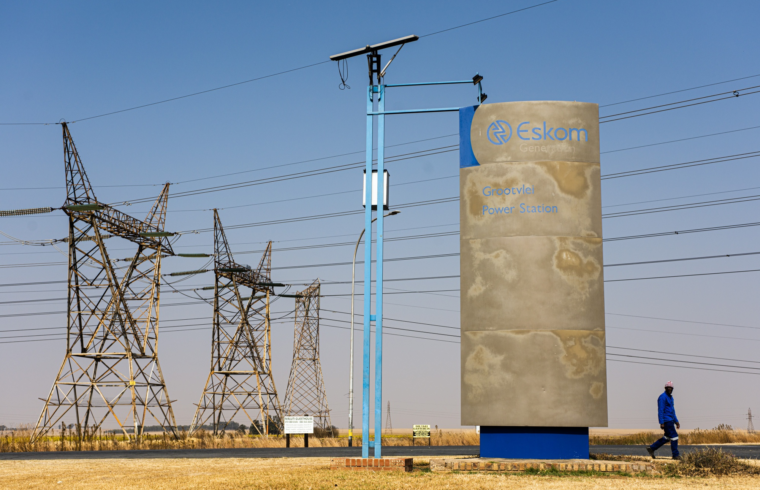Photographer: Waldo Swiegers/Bloomberg
Photographer: Waldo Swiegers/Bloomberg
Sign up to our Next Africa newsletter and follow Bloomberg Africa on Twitter
Fitch Ratings Ltd. said that while South Africa’s worsening debt forecasts don’t include the threats posed by the state taking on any of the embattled power utility’s 450 billion rand ($30 billion) of debt, any risks posed by this are reflected in the nation’s current credit assessment.
Finance Minister Tito Mboweni presented a rapidly deteriorating outlook in his medium-term budget policy statement on Wednesday, with gross government debt seen surging to 80.9% of gross domestic product in the 2028 fiscal year unless urgent action is taken. The trajectory is almost 20 percentage points higher than forecast in the February budget and shows no sign of stabilizing.
Debt Blowout
The Treasury sees South Africa’s ratio of debt to GDP deteriorating
Source: National Treasury

Eskom Holdings SOC Ltd. isn’t generating enough income to cover interest payments on its debt and is struggling to produce enough power to meet demand. The utility supplies about 95% of the nation’s electricity and the government has said it’s too big and important to fail. The Finance Ministry is examining options on the probability of the state taking on some of the debt and is in talks with lenders about this, Public Enterprises Minister Pravin Gordhan said Thursday.
“A clear path toward debt stabilization is still missing,” Fitch said in an emailed statement. “Failure to stabilize the debt-to-GDP ratio over the medium term is a negative rating sensitivity.”
Fitch in July
reduced its outlook on South Africa’s BB+ rating to negative. This usually indicates that the next move could be a downgrade. Fitch cut the nation’s assessment to junk in 2017, leaving Moody’s Investors Service as the only major credit-rating company with an investment-grade reading for South Africa.
The utility says it has about 16,000 more workers than it needs, but labor unions allied to the ruling African National Congress oppose any move to reduce staff numbers. Gordhan said the producer can be fixed without cutting staff drastically.
“Trade-union resistance is also likely to hamper existing government plans to restructure Eskom and improve its operational performance,” Fitch said.











